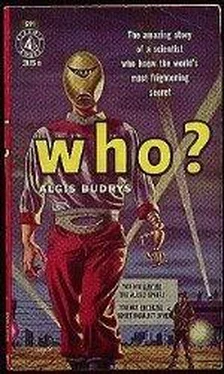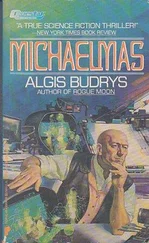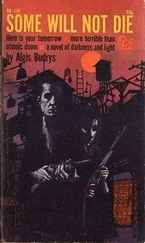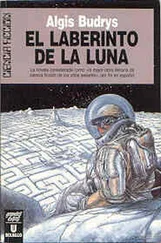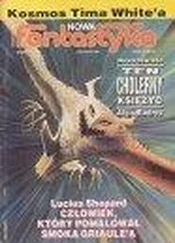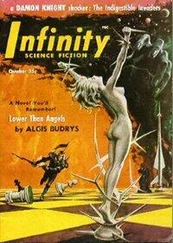Algis Budrys - Who?
Здесь есть возможность читать онлайн «Algis Budrys - Who?» весь текст электронной книги совершенно бесплатно (целиком полную версию без сокращений). В некоторых случаях можно слушать аудио, скачать через торрент в формате fb2 и присутствует краткое содержание. Год выпуска: 1958, Издательство: Pyramid Books, Жанр: Фантастика и фэнтези, на английском языке. Описание произведения, (предисловие) а так же отзывы посетителей доступны на портале библиотеки ЛибКат.
- Название:Who?
- Автор:
- Издательство:Pyramid Books
- Жанр:
- Год:1958
- ISBN:нет данных
- Рейтинг книги:4 / 5. Голосов: 1
-
Избранное:Добавить в избранное
- Отзывы:
-
Ваша оценка:
- 80
- 1
- 2
- 3
- 4
- 5
Who?: краткое содержание, описание и аннотация
Предлагаем к чтению аннотацию, описание, краткое содержание или предисловие (зависит от того, что написал сам автор книги «Who?»). Если вы не нашли необходимую информацию о книге — напишите в комментариях, мы постараемся отыскать её.
Nominated for Hugo Award for Best Novel in 1958.
Who? — читать онлайн бесплатно полную книгу (весь текст) целиком
Ниже представлен текст книги, разбитый по страницам. Система сохранения места последней прочитанной страницы, позволяет с удобством читать онлайн бесплатно книгу «Who?», без необходимости каждый раз заново искать на чём Вы остановились. Поставьте закладку, и сможете в любой момент перейти на страницу, на которой закончили чтение.
Интервал:
Закладка:
How good an actor was their man? Rogers wondered. How good an actor do you believe a man can be?
God help us, Finch, he thought.
CHAPTER TEN
Young Lucas Martino came to Massachusetts Tech convinced there was something wrong with him, determined to repair it if he could. But as he went through registration, drew his classroom assignments, and struggled to fit himself into a study routine like nothing he had ever met before, he began to realize how difficult that might be.
Tech students were already handpicked on the day they entered. Tech graduates were expected to fill positions at the top. A thousand projects were piled up on the world’s schedules, waiting for men to staff them. Once they were implemented, each project had a thousand other schedules waiting for its completion. Plans made a dozen years ahead of time were ready, each timed, each meshed to another, each dependent on the successful completion of each schedule. If a man were to some day endanger that structure in any way, his weakness had to be located as early as possible.
So Tech instructors were people who never gave a doubtful answer the benefit of the doubt. They did not drive their classes, or waste time in giving any particular student more attention than the next. Tech students were presumed capable of digesting as much of the text as was assigned to them, and of knowing exactly what it meant. The instructors lectured quietly, competently, and ruthlessly, never going back to review a point or, in tests, to shade a mark because an otherwise good student had slipped once.
Lucas admired it as the ideal system for its purpose. The facts were presented, and those who could not grasp them, use them, and fit themselves to the class’s progress, had to be eliminated before they slowed everyone down. It was a natural approach for him, and he had a tendency to be mildly incredulous when someone in the next chair turned to him helplessly, already far behind and with no hope of catching up. In the first few weeks of school, he established himself among his classmates as a cold, unfriendly brain, who acted as if he were somehow better than the rest of them.
His instructors, in that first year, took no notice of him. It was the potential failures that they were paid to pay attention to.Lucas thought no more of that than he had at CCNY, where his teachers had been something close to overenthusiastic. He plunged into the work, not so much attracted to it as to the discovery that he could work — that it was expected of him, that he was given every opportunity to do so, and that the school was organized for people who could think in terms of work and nothing else.It was almost two months before he became accustomed to it enough to lose the first edge of his enthusiasm. Then he could settle down and develop a routine. Then he had time for other things.
But be found that he was isolated. Somehow — he could not quite decide how — he had no friends. When he tried to approach some of his classmates, he found that they either resented him or were too busy. He discovered that most of them took at least half again as long at their assignments as he did, and that none of them were as sure of themselves as he. He puzzled over that — these were Tech students, after all — and learned that most people could be content to know what they were doing only eighty-five per cent of the time. But that did nothing to help him. It only confused him more. He had expected, without question, that here at Tech he would meet a different breed of people. And, as a matter of fact, he had. There were plenty of students who abandoned every other concern when they came here. They slept little, ate hurriedly, and did nothing but study. In classes, they took notes at incredible length, took them back to their rooms at night, and pored over them. Letters from home went unanswered, and side trips into town at night were completely out of the question. Their conversation was a series of discussions about their work, and if any of them had personal problems, these were buried and left to take care of themselves while the grind of study went remorselessly on.
But, Lucas discovered, this did not mean that any of them were either happy or outstandingly familiar with their subjects. It only meant that they were temporary monomaniacs.He wondered, for a while, if he might not be one, too. But that idea didn’t seem to fit the facts. So, once again, he was forced to the conclusion that he was a sort of freak — someone who had, somewhere, missed a step most people took so naturally that they never noticed it. He found himself deeply worried by it, at those odd moments when his mind would let him. Through most of the day, he was completely absorbed in work. But, at night, when he sat in his room with the day’s notes completed and the assignments read, when the current project was completed and he closed his books, then he sat staring blankly at the wall behind his desk and wondered what to do about the botch he’d made of Lucas Martino.
The only progress he ever made was in that brief time when he almost literally discovered his roommate.Frank Heywood was the ideal person to share a small room with Lucas Martino. A quiet, calm type who never spoke except when it was absolutely necessary, he seemed to fit his movements about the room so that they never interfered with Lucas’. He used the room only to sleep and study in, slipping out whenever he had any free time. When Lucas thought about it, some weeks after the year began, he decided that Frank, like himself, had been too busy for friendship or anything more than enough politeness to let them live in peace. But, evidently, Frank also settled down and began to find a little leisure, because it was his roommate, and not Lucas, who initiated the short friendship between them. “You know,” Frank astonished him by saying one night, “you are without a doubt the big gun in this student body.”
Lucas looked over from his desk, where he had been sitting with his chin in his hands. “Who, me?”
“Yes, you.” Heywood’s expression was completely serious. “I mean it. The word around the campus is you’re a grind. That’s a lot of bushwah. I’ve watched you, and you don’t hit the books half as hard as most of these monkeys. You don’t have to. One look and it’s in your head for keeps.”
“So?”
“So you’ve got brains.”
“Not many morons get into a school like this.”
“Morons?” Frank gestured scornfully. “Hell, no! This place is the cradle of next generation’s good old American know-how, the hope of the future, the repository of all our finest young technical minds. And most of them couldn’t give you the square of plus one without scratching their behinds and thinking about it for an hour. Why? Because they’ve been taught what book to look it up in, not how to use it. But not you.”
Lucas looked at him in amazement. For one thing, this was by far the longest thing Frank had ever said to him. For another, here was a completely new viewpoint-an attitude toward Tech and everything it represented that he had never heard before, and never considered.
“How do you mean that?” he asked, curious to learn as much about it as he could.
“Like this: the way things are taught around here, the only way most people can get through is by memorizing what they’re told. I’ve been talking to some of these jokers. I’ll bet you I can find ten guys right on this floor who can repeat their texts back word for word, right down to the last comma, and do it like somebody pulling a tapeworm up his throat hand over hand. I will also bet you that if it turns out, fifteen years from now, that some Commie typesetter deliberately fouled up the words in the text, Western science is going to be shot to hell because nobody’ll have initiative enough to figure out what should have been there. Particularly not those ten guys. They’d keep on forever designing missile control systems that tuned in WBZ, because that was the way the book said to do it.”
Читать дальшеИнтервал:
Закладка:
Похожие книги на «Who?»
Представляем Вашему вниманию похожие книги на «Who?» списком для выбора. Мы отобрали схожую по названию и смыслу литературу в надежде предоставить читателям больше вариантов отыскать новые, интересные, ещё непрочитанные произведения.
Обсуждение, отзывы о книге «Who?» и просто собственные мнения читателей. Оставьте ваши комментарии, напишите, что Вы думаете о произведении, его смысле или главных героях. Укажите что конкретно понравилось, а что нет, и почему Вы так считаете.
